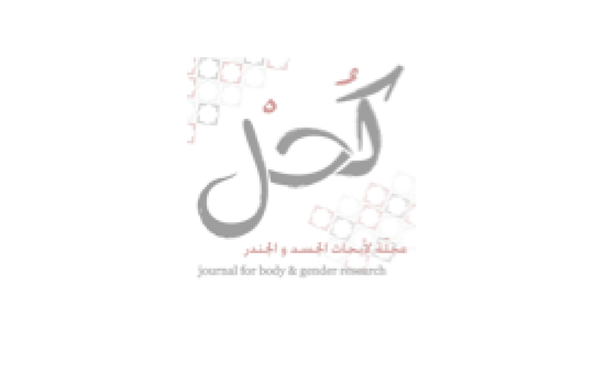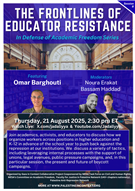Call for Papers: The Geographies of Bodies and Borders
The deadline for submission is July 18, 2016.
We are pleased to invite submissions for the fourth issue of Kohl: a Journal for Body and Gender Research, slated for publication in December 2016. Young activists, independent researchers, graduate students and fresh graduates are particularly encouraged to apply.
For research articles, please select “research” in the online submission form. For opinion pieces, testimonies, essays, interviews, literary pieces, and other texts, please select “other” in the online submission form. For visual and audiovisual material, please contact us at submission@kohljournal.org
- Click here to submit an article through the Kohl editorial manager system.
- Click here to review our submission guidelines.
For queries related to submissions, please contact submissions@kohljournal.org
For general queries, please contact info@kohljournal.org
Kohl: a Journal for Body and Gender Research كحل: مجلة لأبحاث الجسد و الجندر is produced at the Arab Foundation for Freedoms and Equality (AFE) in cooperation with Heinrich Boell Stiftung, Middle East Office, Beirut.
Call for Research Papers
The geopolitical control of borders has intensified what has been widely described as the “refugee crisis” throughout the Middle East, South West Asia, and North Africa regions. The restrictions imposed on border mobility is one manifestation of a system of repressions and policing that operates at the expense of disposable bodies. The multilayered dimensions of bodies and borders are not only geographical in nature, but also encompass concepts of sexual conformity and dissent, militarization, trafficking, labor, and care.
For this issue of Kohl, we are looking for papers centered in feminist, queer, and intersectionality theories that elaborate on the complex connections between bodies and borders, both in the immediate and the symbolic senses. We are interested in understanding bodies and borders as recipients of assigned value and identitarian qualities, which makes transition, trespassing, and movement a source of threat to hegemonic contexts related to nationhood, geopolitics, neoliberalism, and patriarchy. Through understanding the construction of borders and affect, the issue will explore the ways in which bodies are produced, controlled, and commodified.
Possible topics include, but are not limited to:
- Redefining borders: the geographies of politics, bodies, spaces, and the self
- Fragmented bodies: war, torture, detention, forced abortions and sterilizations, and restricted mobilities
- Refugees, displaced and undocumented migrants, and people in buffer and conflict zones
- Asylum seeking, the implications of the legal/illegal being, and the emotional map of identity
- Human trafficking, liberal market economies, and the commodification of bodies in trade
- Military industrial complex, nonviolent resistance such as BDS, and armed resistance movements
- Domestic workers, sex workers, labor, and the economies of care
- Sexual, economic, and racial privileges in access to public resources, privacy, and isolation
- Transgressing and transitioning borders: sexual geographies, non-conforming sexualities and expressions, and bodies of dissent, and their implications on fragile citizenship, healthcare, and neoliberal economies
- Breaking the binaries: disability discourses in the context of war and displacement
- Feminist reconceptualization of borders: is it possible to talk about safe spaces?
- Reconfiguring desire, pushing the boundaries: non-normative polyamory, kink, and the politics of mutual and self-care
Call for Other Pieces
For this issue of Kohl, we are looking for opinion pieces, essays, testimonies, commentaries, conversations, interviews, literary pieces, creative pieces, and audiovisual material that discuss the connections between bodies and borders, whether geographical, political, or gendered.
The issue will explore the ways in which bodies are produced, controlled, and commodified. We are interested in pieces that tackle bodily experiences with borders, or how bodies navigate borders, and the strategies that have been implemented to handle them. We also welcome personal and community processes of documentation and reflection. The pieces can either challenge the concept of imposed geographical borders or consider borders as imaginary in relation to sexuality, identity, nationalism, memory, etc.
The theme includes a variety of topics, ranging from daily resistance through acts of care, non-conformity, navigation of space, pushing sexual boundaries, and labor, to trafficking, migration, exile, displacement, and war.
Possible topics include, but are not limited to:
- Experiences or reflections on war, torture, detention, forced abortions and sterilizations, and restricted mobility
- Refugees, displaced and undocumented migrants, and people in buffer and conflict zones
- Asylum seeking and queer migration
- Human trafficking and bodies as commodities
- Nonviolent and resistance movement organizing and participation
- Domestic workers, sex workers, labor, and the economies of care
- Sexual, economic, and racial privileges in access to public resources, privacy, and isolation
- Mapping geographical borders and national sentiment
- Visa procedures and limited access and mobility
- Mapping sexual borders and non-heteronormative sexualities and expressions
- Disability of bodies in the context of war and displacement
- Is it possible to talk about safe spaces in feminist collectives and organizations?
- Challenges of being horizontal in feminist collectives and organization
- Queer desire, non-normative polyamory, and kink
- Mutual and self-care strategies


















